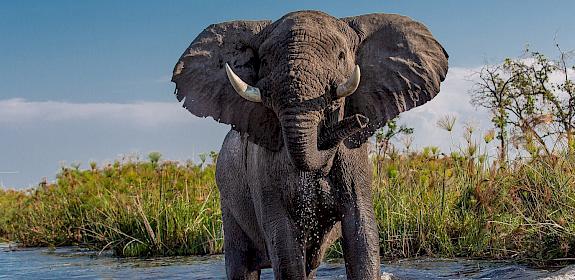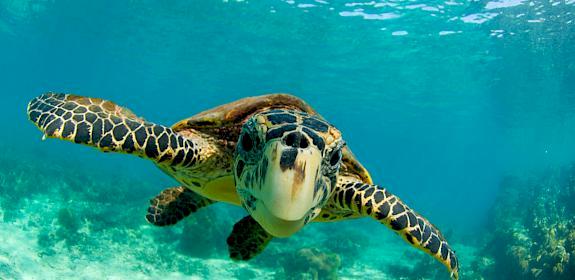Persistent illegal bird trade highlighted at notorious Bangkok Market
Bangkok, Thailand, 28th July 2016—More than one thousand birds were found for sale in Bangkok’s famous Chatuchak Weekend Market over a two-day period, many of them legally protected and internationally threatened, according to a new paper published in Birding ASIA, the bulletin of the Oriental Bird Club.
TRAFFIC researchers counted 1,271 birds of 117 species in 45 shops or stalls during a survey on 28th and 29th March, 2015.
Of the total, nine species are listed as threatened on the IUCN Red List and eight species as Near Threatened. More than half the species were native to Thailand, the majority of them considered to be wild caught and thus protected by national legislation—which should prevent their capture and trade.
Among them was the native and nationally protected Red-whiskered Bulbul Pycnonotus jocosus, a popular competition songbird in Thailand and the second most numerous species recorded in the inventory.
Many birds in the market appeared to be in poor condition with some, particularly owls, on the verge of unconsciousness, suggesting a high level of mortality.
Although the numbers of birds recorded were lower than those found during surveys at Chatuchak in the late 1960s and 1980s, the open illegal trade at the market highlights the essential need for regular and effective enforcement, especially for native protected species, say the paper’s authors.
The researchers also said that many of the 56 non-native species could have been bred in Thailand but did not discount the possibility that some may have been smuggled into the country.
Little is known about the commercial breeding of birds for sale in Thailand although it is common practice for wild-caught birds to be laundered as captive bred in Asia. There is a clear need for Thailand to do more to monitor and regulate captive breeding operations
Serene Chng, co-author and Programme Officer with TRAFFIC
Of particular note was the presence of four Critically Endangered Yellow-crested Cockatoos Cacatua sulphurea, an internationally protected non-native species recorded in many high profile seizures.
The Thai government is currently reviewing the Wild Animal Reservation and Protection Act to include such non-native species that are currently protected under international regulations through the Convention on International Trade in Endangered Species of Wild Fauna and Flora (CITES) but not by national laws.
”We are greatly encouraged that the Government of Thailand is taking steps towards amending the outdated and ineffective legislation,” said Dr Chris R. Shepherd, Regional Director for TRAFFIC in Southeast Asia. “The loophole is taken advantage of by unscrupulous dealers and undermines enforcement and conservation efforts.”
Dr. Nonn Panitvong, a committee member for the Bird Conservation Society of Thailand, the national BirdLife partner in Thailand said: “Although illegal wildlife trade is increasingly moving to online platforms, markets like Chatuchak remain important for both legal and illegal trade in species that enter Thailand and clearly need to be closely monitored and regulated."





